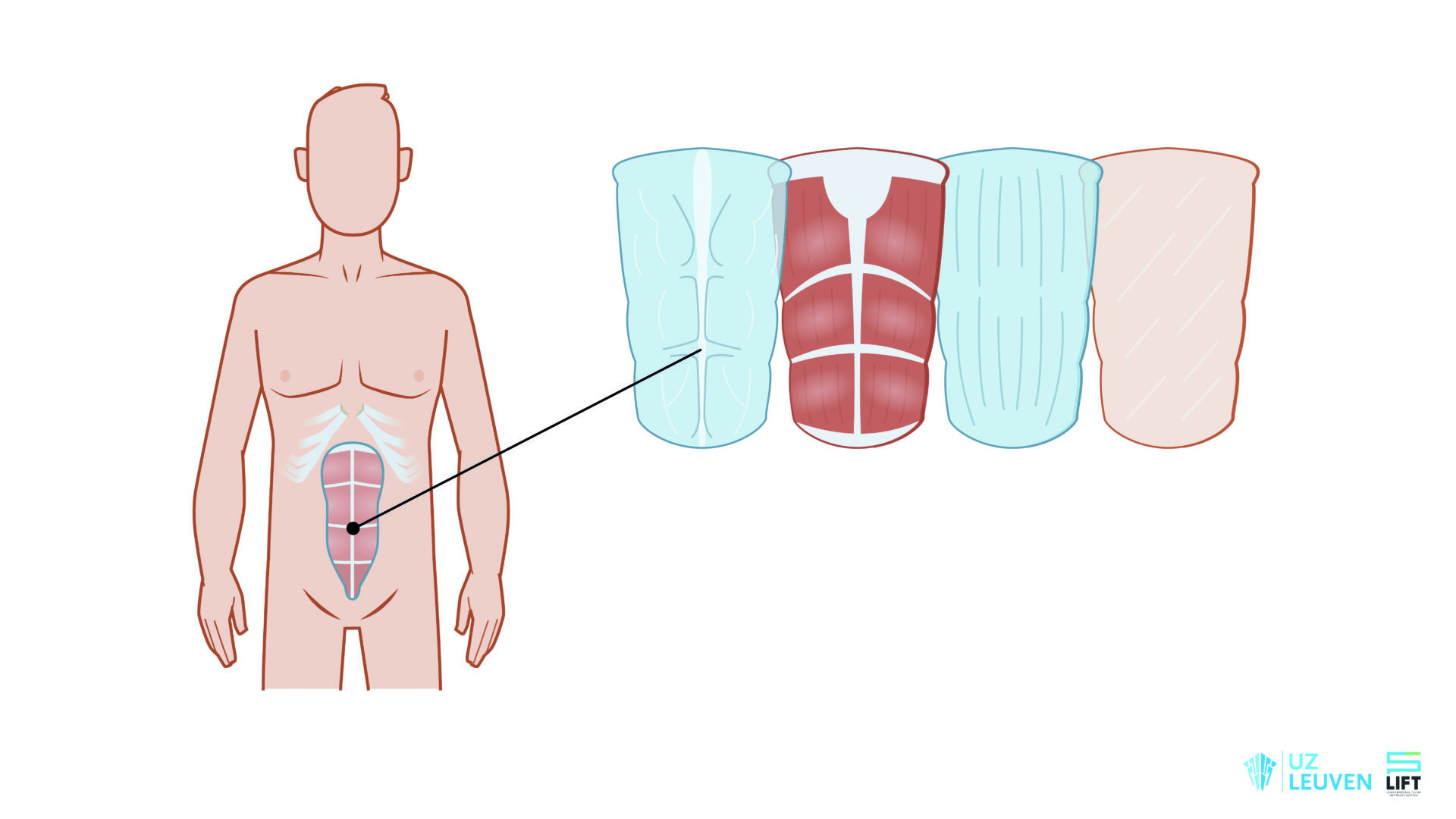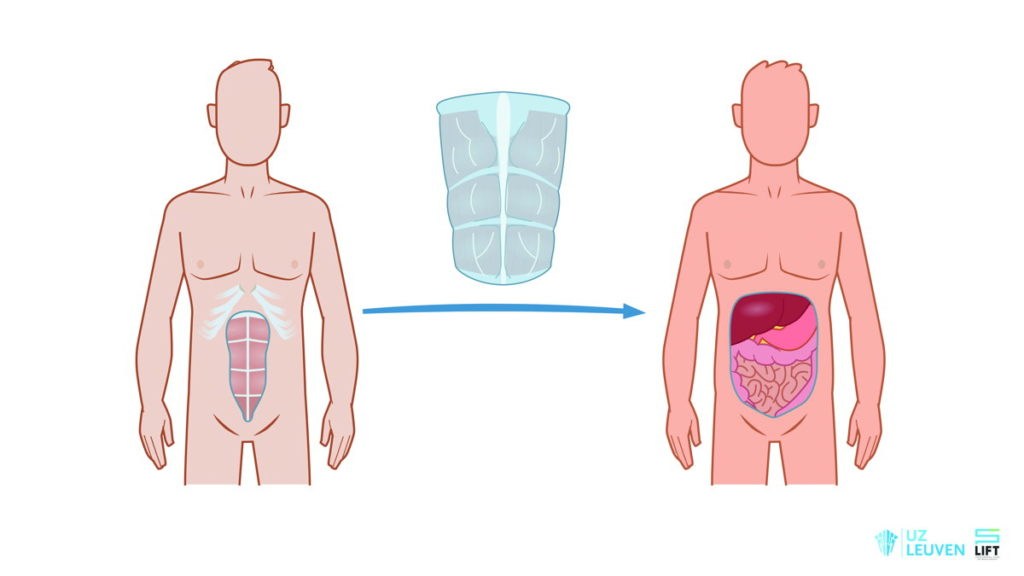The first abdominal wall transplant has been performed in Belgium, resulting in a patient successfully receiving a new abdominal wall from a deceased donor.
The intestinal transplant team at the University Hospital in Leuven (UZ Leuven) successfully performed the operation, which has only been done about 50 times across the world, using a technique developed in the United States, making it the first hospital to do so in the country.
The operation is an extremely delicate procedure and only carried out for patients who are also undergoing intestinal or multi-visceral transplants. These involve replacing the stomach, liver, pancreas and small intestine at the same time and happen on average once or twice a year at UZ Leuven.
In the wake of these operations, the abdominal wall becomes too rigid to be closed. This causes the abdominal cavity, where the stomach and the small and large intestines are located, to shrink. The abdominal wall transplant is an alternative to various other techniques for closing the abdominal wall after intestinal operations.

The donor's abdominal wall contains several layers, including the anterior tendon, the straight abdominal muscles, the posterior tendon and the peritoneum. Credit: UZ Leuven
"From week one after transplantation, we could see small blood vessels forming again in the transplanted abdominal wall. After six months, these formed an entire network without any signs of rejection," Dr Laurens Ceulemans of the UZ Leuven said.
Related News
- Belgian charity supports projects to combat chronic stress among health care staff
- Positive results for experimental Covid-19 treatment
The hospital is now looking into whether an abdominal wall transplant can be performed safely without the use of immunosuppressive medication and how long a donor's abdominal wall can be kept safely in the tissue bank.
"In time, the new transplant technique may also prove potentially useful for patients with a severe abdominal wall defect and fistulae (an abnormal connection between two body parts) in the intestines, such as in patients with Crohn's disease," Dr Nele Van De Winkel said.

